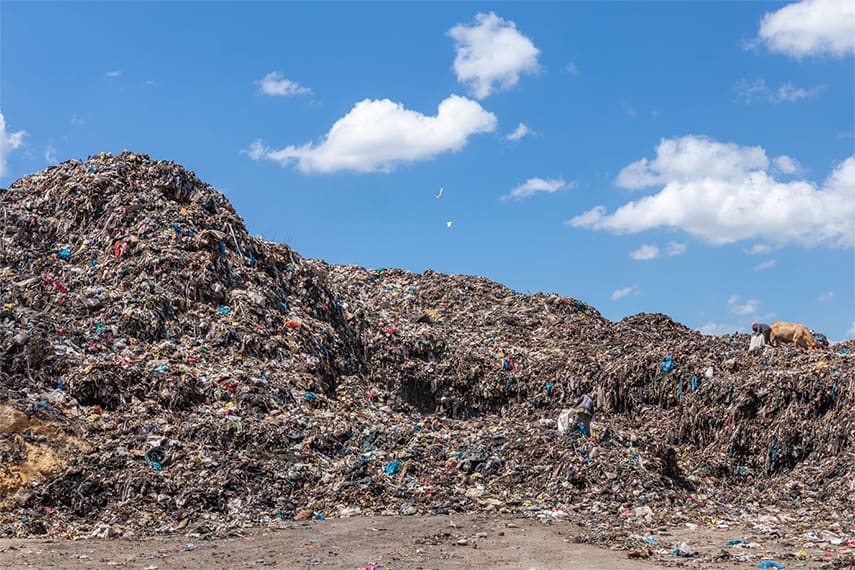 Add My Company
Add My Company

Even though it’s an important global issue, different countries around the world still don’t recycle their waste.
In some nations, governments feel it’s a waste of money to recycle waste materials such as plastic, paper, aluminium and glass.
© Jensil Brujan / Shutterstock.com
Research shows there’s also a lack of understanding among members of the public about how important it is to stop sending waste to landfill.
Why is recycling important?
Vital for our planet’s future wellbeing, recycling reduces the need for landfill sites and other expensive forms of waste disposal. It also helps to conserve Earth’s natural resources, as it means there’s less need for us to extract increasingly scarce materials through quarrying, mining and logging.
Processing and refining raw materials create significant air and water pollution, which adds to the existing problems, including global warming.
Recycling can help to reduce the amount of greenhouse gas emissions, as it reduces energy consumption. The large amount of greenhouse gas production that comes from mining and extracting virgin materials can therefore be avoided.
Waste can be transformed into useful items, especially when it comes to plastics, furniture and clothing.
A huge range of products can be created from recycled plastics including food trays, drinks bottles, polyester fabrics for clothing, wheelie bins, carrier bags, refuse sacks, car bumpers, wheel arch liner, reusable pallets and crates.
While governments across the world largely control the recycling efforts in their country, it’s up to individuals to do their bit to help.
A simple recycling system at home and in the workplace is vital, as it helps us to contribute to a better environment.
Landfill facts
Sending waste to landfill is creating a massive global problem. Human beings across the world are generating increasing amounts of rubbish. In fact, we create around two billion tons of waste per year, according to statistics on waste from the World Bank. Unfortunately, this is likely to increase, unless we change our habits.
The study estimates that by 2050, the amount of waste we produce globally will have risen to 3.4 billion tons annually - an increase of almost 70%. It concludes that people live in a “throwaway society” and many of us don’t have any ideas about how to dispose of our waste.
Currently, around 40% of world waste is dumped at landfill sites. The fifty biggest sites in the world adversely impact the life of a staggering 64 million people!
Compacted to take up a smaller space, the waste is buried deep under the soil, so it will decompose over time. However, it can take many years to rot away, due to being in an environment with little moisture or oxygen.
Even though it’s handled in a controlled way, landfill can cause soil and groundwater contamination. Materials that may be contained in the waste, such as mercury and lead, can spread to local water and soil. Should the membrane containing the waste rupture, this can devastate the local environment, affecting people, wildlife, flora and fauna. Birds and other wild animals that feed from the waste can ingest materials that might prove fatal.
Landfill sites can escalate global warming, due to the biogas that they release into the environment. Formed mainly from carbon dioxide and methane gas, biogas is particularly harmful, as it increases the Earth’s temperature.
A study by ISWA suggests landfill sites will create 10% of all greenhouse gas emissions by 2025, unless we radically change our waste disposal habits.
Why don’t people recycle?
In many countries worldwide, waste materials such as aluminium cans, glass and plastic are not widely recycled to create new products.
Individual people cite many reasons, such as being short of time, so it’s easier to just dispose of all the waste together.
They also blame a lack of space to store recyclables until the relevant collection date, simply “forgetting” to recycle, or not knowing where to start.
A lack of education and awareness about recycling benefits is partly to blame.
Several countries’ governments believe recycling is a waste of money that could be spent on other services. They cite insufficient funds to set up recycling schemes and a lack of infrastructure.
In less well-off countries, there are various competing priorities for already scarce government finances.
Recycling rates by country
There is a tie for the world’s most wasteful country, with Chile and Turkey topping the list by each recycling only 1% of waste.
According to research by the Organisation for Economic Cooperation and Development, waste management isn’t a priority issue in Turkey, hence 99% of rubbish ends up being dumped in landfill sites.
In Chile, there is a sparse waste management system, but with little regulation or organisation, the vast majority of rubbish goes to landfill.
These are the only two countries in the world whose recycling efforts have gone backwards in recent years. In Turkey, the amount of recycling has reduced by 33%, while it has declined by 78% in Chile, over the past two decades.
The people living there have little choice other than to dispose of their waste in the ways provided by the government.
In the Dominican Republic, people generate more than 11 metric tons of waste daily, including around 2,000 tons of plastic waste. This is the equivalent of some 200 million plastic water bottles each day.
There was little recycling carried out, until local entrepreneur and informal waste collector Alfonso Frías decided to register his recycling business, Recycling Bay, in 2019. He signed an agreement with the nation’s first recycling plant, Cilpen Global, to expand his green business, with support from USAID.
The former hospitality worker saw first-hand how much rubbish, especially plastic bottles, people generated and wanted to do something about it. This initiated changes in government legislation in November 2020 to improve and expand recycling nationwide.
Germany is the top nation in the world in terms of recycling, with a success rate of 65%. This has increased by 16% since 2000. Surveys have shown German people like recycling, as they believe it creates a feeling of civic virtue of which they can be proud.
Poland has improved most since 2000, as today, it recycles an incredible 886% more waste than it did at the turn of the century.
Estonia has also improved dramatically, recycling 600% more waste now than in 2000. The UK has also increased its recycling efforts by 250% to 45% today.
Experts suggest rectifying people’s apathy towards recycling is imperative. They say adding the initiative to school curriculums worldwide is a must, and governments should do more to explain the issues to people and encourage them to participate.
We’re a big wide world: everyone needs to take their recycling responsibilities seriously!
For more information on Recycling: Different Attitudes Across the World talk to Solent Plastics

